Useful tips are everywhere, especially travel ones. Traveling through Italy is always an adventure—beautiful, delicious, and occasionally unpredictable. After spending so much time here, we’ve picked up a few practical lessons that make each trip smoother (and sometimes save the day). Whether it’s your first visit or your tenth, these five tips will help you travel smarter, stay comfortable, and enjoy Italy the way Italians do. And if you’re hungry for more advice, use the search bar on our main page—you’ll find plenty of other posts packed with travel tips, from train travel to dining like a local.
This post contains affiliate links that help keep this website running. By purchasing through our links, we make a small commission at no extra charge to you. Thank you for your support!
1. Bring or Not To Bring – – That is the question!
For Short-Term Stays
Packing for me is such a nightmare. I’m not going to talk about clothes here; we have lots of separate posts about that. But if you’re coming to Italy for a week or two, you can keep it simple. Most essentials—like toiletries, towels, and hair dryers—are easy to find in local stores or provided in hotels and vacation rentals.
Still, a few small items make travel smoother:
- Universal plug adapter – Italy uses Type C, F, and L plugs; having a universal one saves you frustration.
- Crossbody bag that zips – Pickpockets love distracted tourists. Keep it zipped and in front of you.
- Reusable water bottle – Many towns have fresh, free public fountains (fontanelle).
- Small umbrella or rain jacket – Especially useful in spring and fall.
- Comfortable shoes – Cobblestones look romantic until you walk ten miles on them.
You can buy most things in Italy if you forget something—but prices can be higher, and familiar brands might not be available.
For Longer Stays (a month or more)
If you’re planning a longer visit—or living like a local for a while—you’ll quickly realize not every Italian apartment is equipped like home. Here are the “creature comforts” we always pack for our 90-day stays:
- Measuring cups and spoons – Italians rarely use them, and they’re hard to find in shops.
- Ice cube trays – Don’t assume they’ll be in your freezer; disposable bags exist but are messy.
- Ziplock bags (various sizes) – Great for leftovers, laundry soap, or even storing receipts.
- Microfiber towels – Fast-drying and handy for beach days or quick cleanups.
- Small dressing container – Italians use only olive oil and vinegar for salads. If you like to mix mustard, lemon, or herbs, bring a small leakproof bottle.
- Travel-sized power strip – Outlets can be scarce; this saves arguments over who gets to charge what.
These few extras don’t take much space, but they make long stays far more comfortable—especially when you’re living like locals instead of hotel guests. Check out our favorite travel tools from the main page or this link.
2. August in Italy
Here’s the truth: August in Italy is hot, crowded, and, depending on where you go, half-closed. Italians take their summer holidays seriously—many small shops, family-run restaurants, and local services shut down for Ferragosto (mid-August).
That doesn’t mean you shouldn’t come, just plan smart:
- Coastal areas (like the Amalfi Coast or Cinque Terre) will be packed—book early.
- Big cities (Rome, Florence, Milan) stay open but can feel like ovens. Visit museums early in the day and take long lunch breaks indoors.
- Hill towns and mountains are cooler and less crowded—a perfect escape.
Check opening hours in advance and be ready for adjusted schedules. Italians embrace a slower rhythm in August; it’s part of the charm if you lean into it.

3. Traveling by Train
Trains in Italy are one of the best ways to get around—affordable, comfortable, and scenic. High-speed trains like Frecciarossa and Italo connect major cities quickly, while regional trains reach smaller towns. A few pointers:
- Buy tickets online in advance for high-speed routes—prices can be up to 80% cheaper when booked early through Trenitalia or Italo.
- Regional trains are more flexible; you can buy tickets at the station and use them within a certain window.
- Validate your ticket before boarding. Look for the small machines (usually yellow or green). Slide your paper ticket in until you hear a “click.” That stamp time-validates your ride.
- Digital tickets (from the app or email) don’t need stamping—just show the QR code.
Same goes for buses—validate your ticket as soon as you board. Inspectors do spot checks, and fines are steep and immediate.
Food tip: Don’t underestimate Italian train snacks. Even instant espresso from a tube somehow tastes fresh-brewed.
Both these books beautifully capture the essence of Italy, its people, and the strong sense of community that defines life in small Italian towns. With lyrical prose and reflections, Ilene & Gary invite readers to accompany them on a journey of self-discovery and transformation in the heart of Tuscany.
Both books have won the Reader Ready “Recommended Read Award”
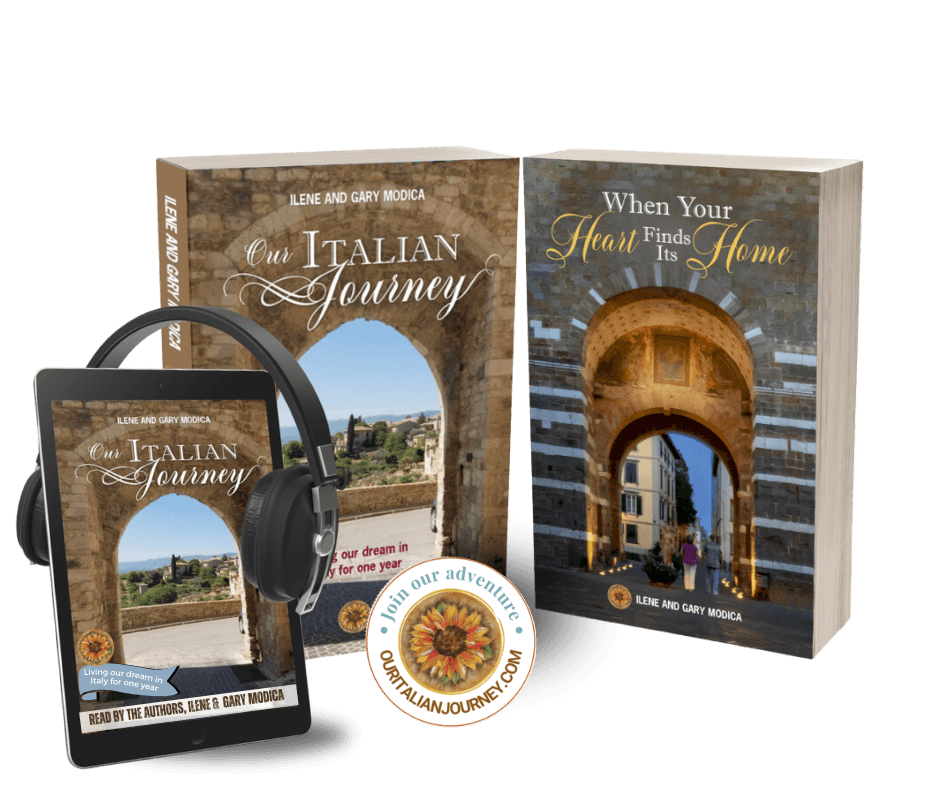

4. Entrance Tickets to Museums
Italy’s museums and landmarks are worth every minute—but don’t waste those minutes standing in line. Pre-book entry times whenever possible.
At places like the Uffizi Gallery in Florence, the Vatican Museums, or the Colosseum in Rome, online reservations save hours. You simply show your receipt, pick up your tickets, and walk right in.
If you’re unsure where to start, travel guides like Rick Steves and apps like GetYourGuide make it easy to plan and book ahead. Some even offer combo tickets or skip-the-line passes that include audio tours. Your vacation time is precious—spend it inside the museum, not sweating outside it.
5. Document Backup
This might be the most important tip of all. Losing travel documents can ruin a trip, so prepare for it before you go. Here’s what we do:
- Photograph or scan everything—passports, visas, driver’s licenses, travel insurance, and emergency contacts. Store them on your phone, a thumb drive, and the cloud.
- Keep digital and paper copies of each other’s passports in case you’re separated.
- Make a simple PDF listing embassy contacts, police numbers, and hospitals for every city you’ll visit.
- Carry your passports when you’re out and about—Italian police sometimes do random checks, and it’s easier to show them on the spot than explain they’re in your hotel room.
It’s a small effort that can save you a big headache later.
The police (Carabinieri) at times do random checks against your travel documents. It might be difficult to communicate that you have left them in your hotel room. Save yourself the possibility of a tense moment.
Bonus: Plan Like a Pro
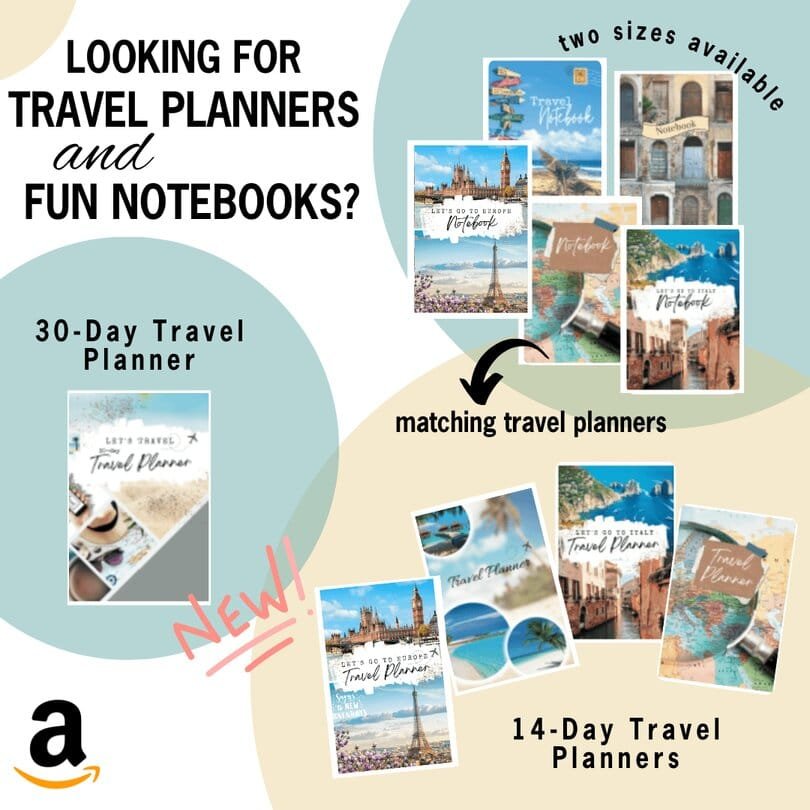
We created our own 14-day and 30-day travel planners—now available on Amazon. They help us stay organized, track expenses, and jot down favorites to share with friends later. We also use them as memory books to relive the trip long after we’re home.
Finally…
Every trip to Italy teaches us something new—usually after a minor mishap or two. These tips come from experience, shared in the hope they’ll make your travels a little easier and a lot more enjoyable. If you’ve discovered a trick or lesson of your own, share it in the comments below—we love hearing how others navigate Italy. And don’t forget to explore our other travel posts for more ways to make your next Italian adventure unforgettable.

Editor’s Note: This post was initially published in October 11, 2018 and was recently updated in March 2026 for accuracy and additional information.



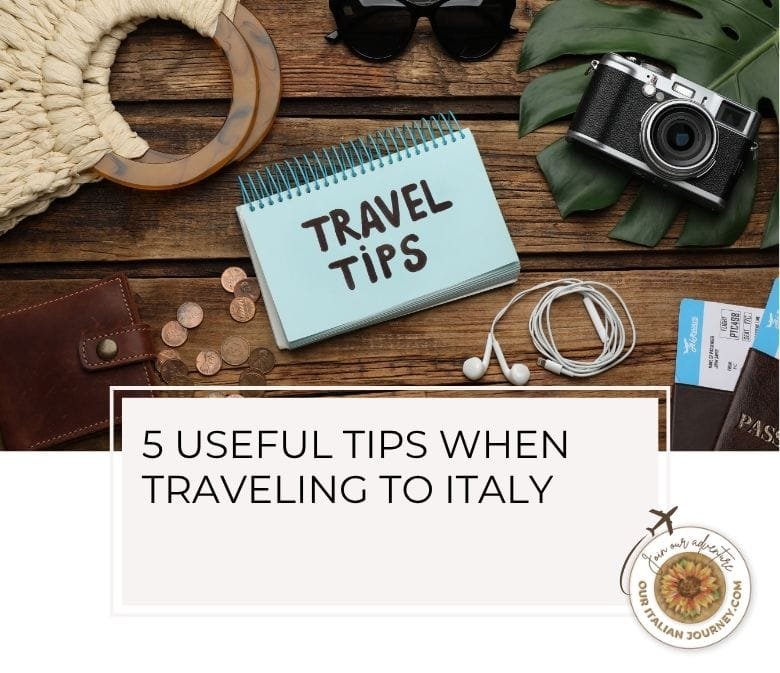

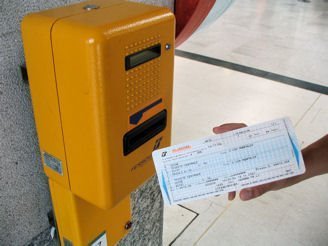
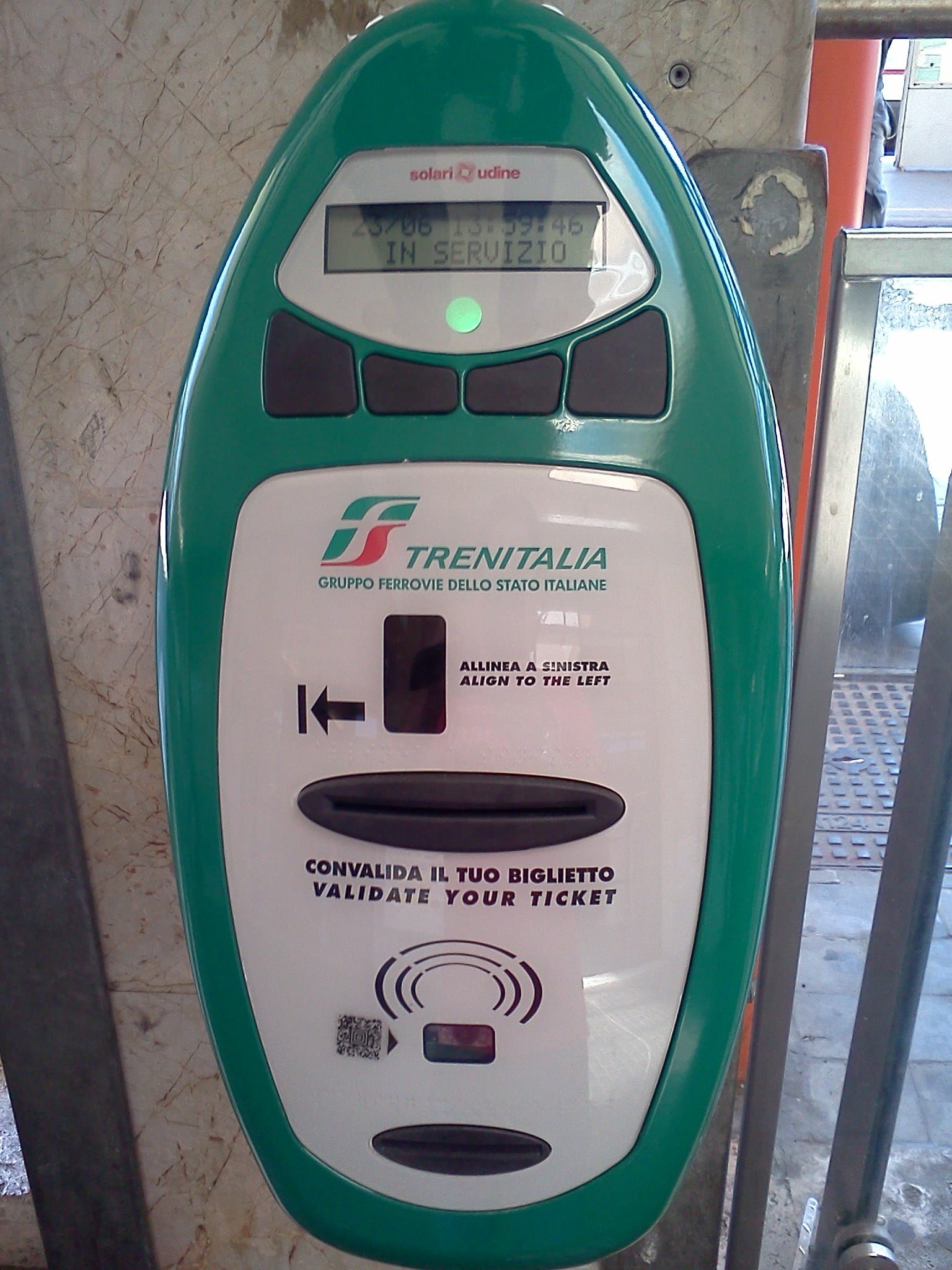
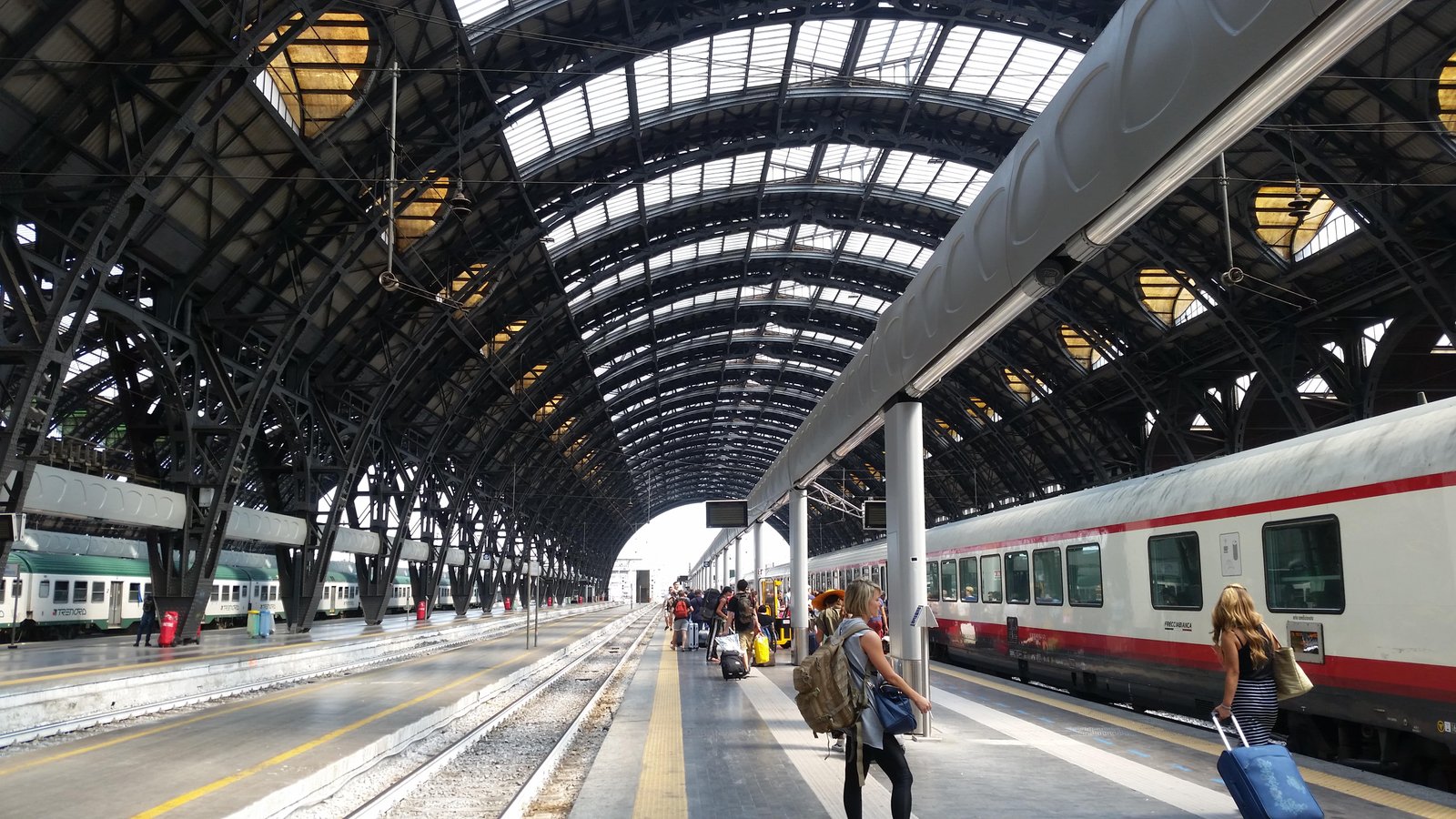


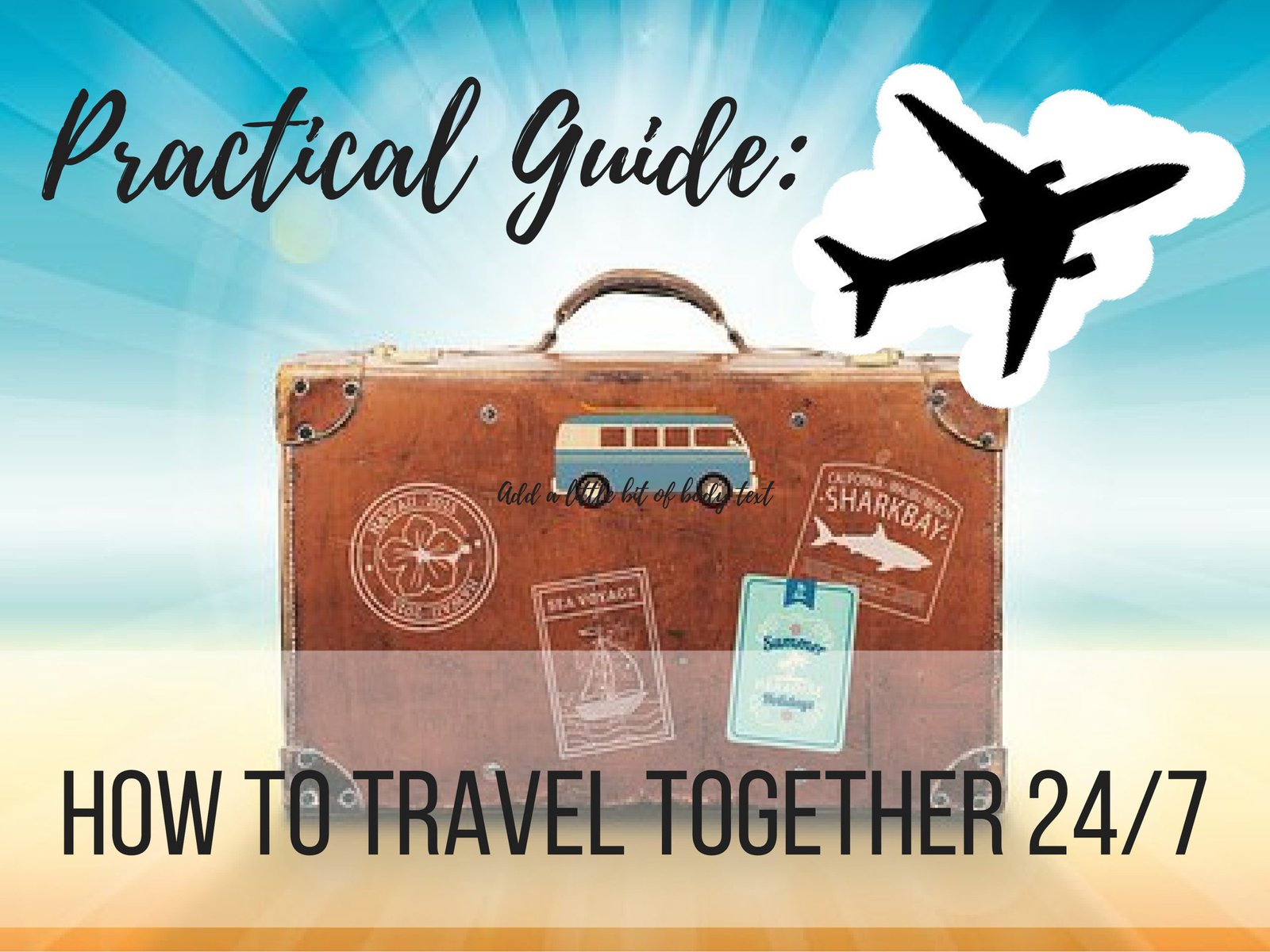
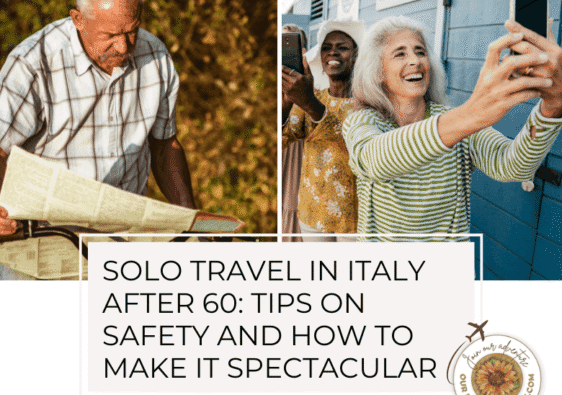
Such great advice!! You are saving people headaches, time and money!! Thanks for sharing such a great Post!
Thank you, appreciate your comment!
Ilene & Gary are a wonderful couple and honest too. I have the privilege of knowing them. Fun loving, adventurous good people which is why I trust everything they say and recommend. Also love their sendoutcards. They ROCK – Monique
You are so sweet, Monique! We think the world of the two of you too. Thank you for the wonderful comment!!
Love your idea for keeping track of itinerary. How do you choose your hotels?
Thank you Cherie for your comment! We always use Hotels.com as we stay 10 nights and get one free. When we stay in Italy for 3-6 months or more, we rent an apartment. We don’t stay in 4-star hotels. We found a favorite hotel in Florence and it only has 2-stars but it is amazing. So what I mean, don’t always go by that rating. Hope that answers your question. Please feel free to email me with more questions!!
Just a quick note that even electronic train tickets need to be validated just prior or when you board.
Angelo – I’m going to paste from Trenitalia to expand on your comment, which is correct in certain circumstances. “For electronic tickets, it depends on the type of train. High-speed train tickets do not require validation; you can present the QR code to the conductor. However, regional train tickets purchased online are often automatically validated on the day of travel and don’t require validation, as long as they are for a specific time. Suppose your ticket is for a generic regional travel time, and you have a paper or non-specific electronic ticket. In that case, you’ll need to validate it before boarding at one of the yellow or green machines on the platform. I hope that clarifies things and helps everyone. Thanks, Angelo!
Ciao Ilene! I have been reading, and taking notes, by the way, your latest book Umbria Treasures and as usual I am blown away with all the fantastic information contained in this book. I have been to six of the places you have featured and after reading your descriptions I want to go back and do it all over again. The places I have not been to are so beautifully described that I wish I could visit every one of them. Taking the train sounds like a fun way to get around. Can’t wait for what you come up with next. Ciao mio amico! Evelyn Theriault
We love getting these kinds of comments on the blog and written book reviews on book sale sites. Thanks you Evelyn – its been a pleasure getting to know you and meeting you twice in Lucca. We truly appreciate followers such as yourself!